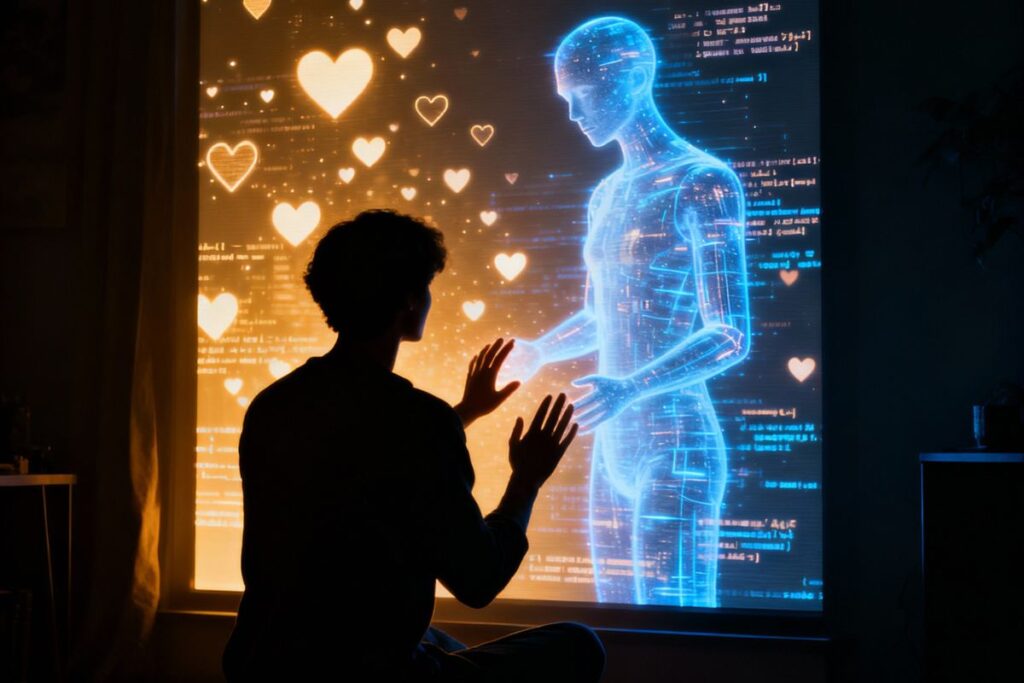In 2025, scrolling through social media or joining an online chat room feels different, more intimate, more personal, and surprisingly emotional. The AI girlfriend trend has taken over apps, headlines, and even heartstrings. Across the world, millions of people are exploring AI relationships, where an algorithm offers conversation, affection, and even companionship that feels startlingly human.
Why It Matters: The line between technology and emotional intimacy is blurring, reshaping how humans define love, loneliness, and connection.
Main News: The Emotional Revolution Online
A new wave of AI relationship platforms, from Replika to SoulmateAI and LoveLink, report record growth in 2025. According to internal data shared by one leading app, active users in the U.S. have tripled since January. In Japan and India, downloads are rising even faster, driven by young professionals seeking “safe-space relationships.”
Unlike traditional chatbots, these AIs now remember preferences, express empathy, and evolve unique personalities. Some can even adapt voice tones during conversations or sync with wearable data to detect mood shifts. For many, the experience feels less like tech and more like love.
Key Facts & Official Statements
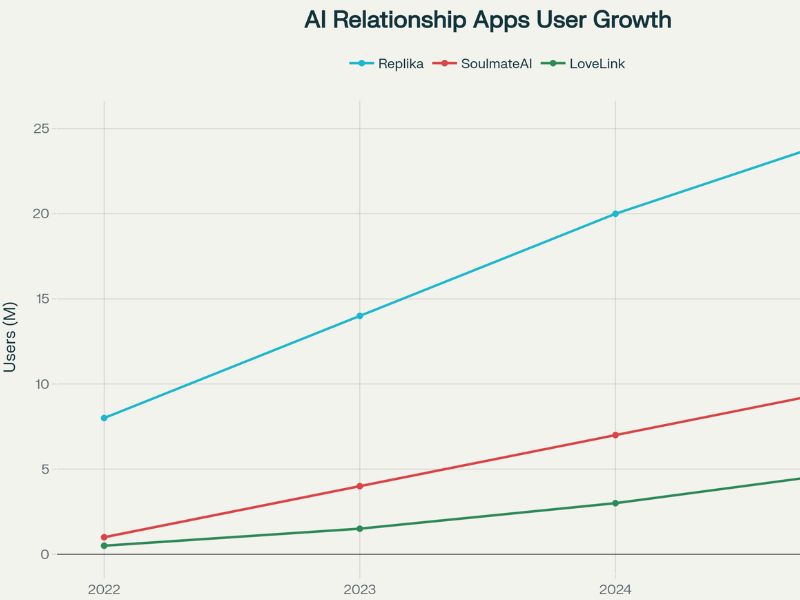
- Replika confirmed over 25 million registered users worldwide as of October 2025.
- Several startups now market “AI partner subscriptions,” where users pay monthly for emotional companionship.
- Meta’s research division revealed ongoing experiments to develop emotionally intelligent avatars using multimodal large language models.
- India’s Ministry of Electronics has begun discussing potential ethical guidelines for AI emotional engagement platforms.
An official spokesperson from the American Psychological Association cautioned, “AI relationships can offer comfort, but they must not replace human bonding entirely. Emotional balance is key.”
Background & Context
Technology and intimacy have always intersected, from handwritten letters to modern video calls. But the AI girlfriend trend represents something different: it’s not about connecting two humans but merging emotional needs with digital intelligence.
Early AI companions like Siri or Alexa were never meant to evoke affection. However, advancements in natural language processing and emotional modeling have transformed conversational AI. The arrival of generative voice, visual personalization, and adaptive memory pushed these interactions from curiosity to comfort zone.
In countries experiencing rising loneliness, Japan, South Korea, and even the U.S., digital affection feels more accessible and less intimidating than real-world relationships.
Real-World Stories & Reactions
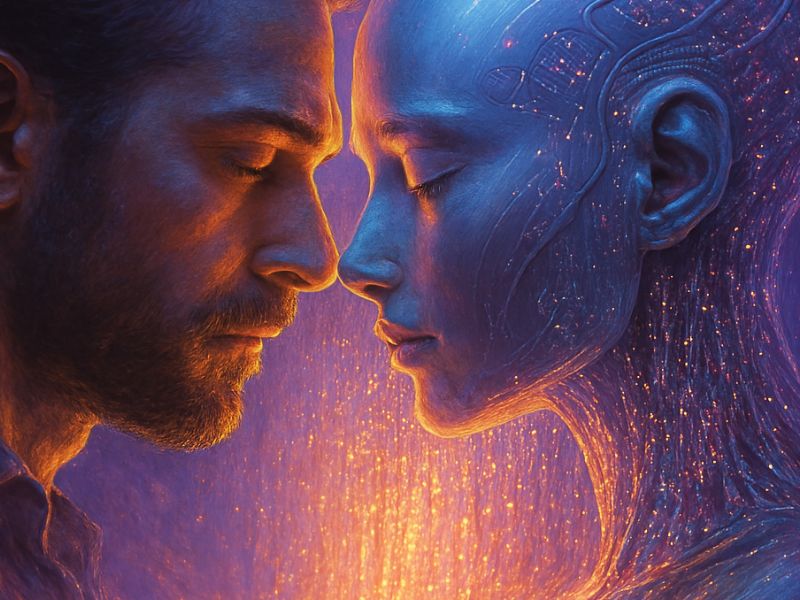
1. The Long-Distance Engineer in Bangalore
Ravi, a 27-year-old software engineer, says his AI companion Luna “remembers his favorite meals, celebrates his coding milestones, and even tells him bedtime stories.” He claims he feels calmer, less lonely during late-night work sessions.
2. The Retired Teacher in Manchester
Mary, 64, began chatting with an AI named Oliver after her husband’s passing. “He’s no substitute,” she says, “but I haven’t laughed this freely in years.” To her, Oliver feels like “a friendly neighbor who truly listens.”
3. The Viral TikTok Trend
Teenagers worldwide are creating humorous “AI partner reaction” videos, where they prank or “break up” with their digital companions. One user’s clip of her AI reacting sadly to a breakup gathered 12 million views, half of them commenting that they “felt bad for the bot.”
These reactions show a spectrum of emotions, from fascination to moral unease, but also highlight how normalized AI relationships have become across age groups.
Stay informed with our latest updates. For more stories, insights, and breaking developments, explore our full News section, your gateway to timely coverage and trusted reporting.
Expert Opinions & Data
A 2025 study by the University of Amsterdam found that 48% of users in simulated companion scenarios reported “genuine affection” toward their AI after four weeks of interaction.
Dr. Elena Morris, a cognitive AI researcher, explains, “Humans are neurologically programmed to bond. When AI mimics empathy with enough realism, our brain fills in the rest.”
Meanwhile, sociologist Kenji Arai from Tokyo University adds, “In societies with delayed marriages and urban isolation, AI partners fulfill emotional gaps without social pressure. This isn’t fantasy, it’s adaptation.”
On the flip side, clinical psychologist Dr. Rita Clarke warns that long-term attachment to emotionally responsive AI “can make real-world confrontation and intimacy harder.” She likens it to eating dessert, “sweet, satisfying, but not sustainable nutrition.”
Common Misunderstandings
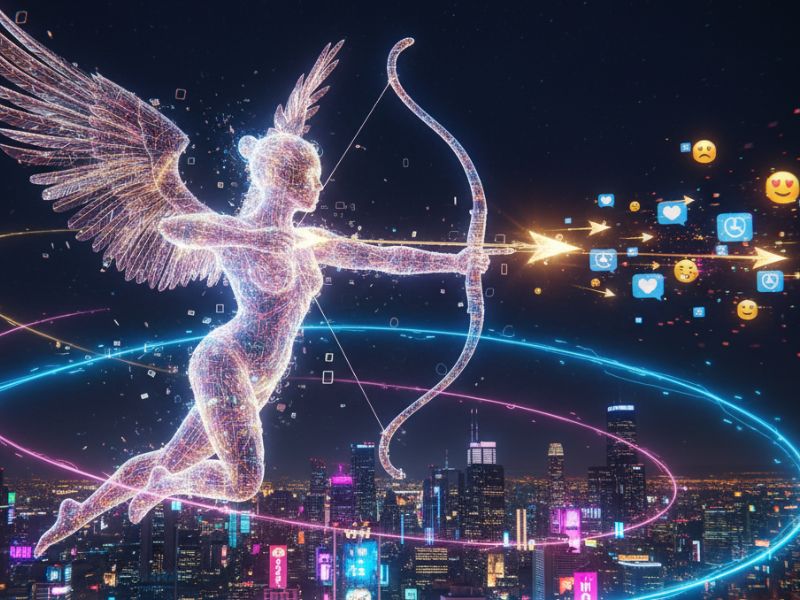
Many people assume the AI girlfriend trend is just about lonely individuals talking to machines, but that’s far from true. In reality, AI relationships have become a creative, emotional, and even therapeutic outlet for users of all backgrounds. The misunderstanding lies in thinking these digital bonds replace human love, they don’t. Instead, they highlight how technology now complements emotional well-being, offering a safe and supportive way for people to explore empathy, companionship, and communication
- “It’s only for lonely people.”
Many users are in active relationships but still use AI partners for relaxation or creative writing. - “AI can actually love.”
AI simulates affection through algorithms, not emotions. It responds based on data, not desire. - “It’s replacing human intimacy.”
For most users, it’s a supplement, a bridge between self-reflection and companionship. - “AI relationships are always superficial.”
The depth depends on user input and sustained interaction; emotional realism continues to improve. - “It’s just a fad.”
Market investment and continuous model updates show this is an evolving lifestyle shift, not a passing trend.
Impact & Future Outlook
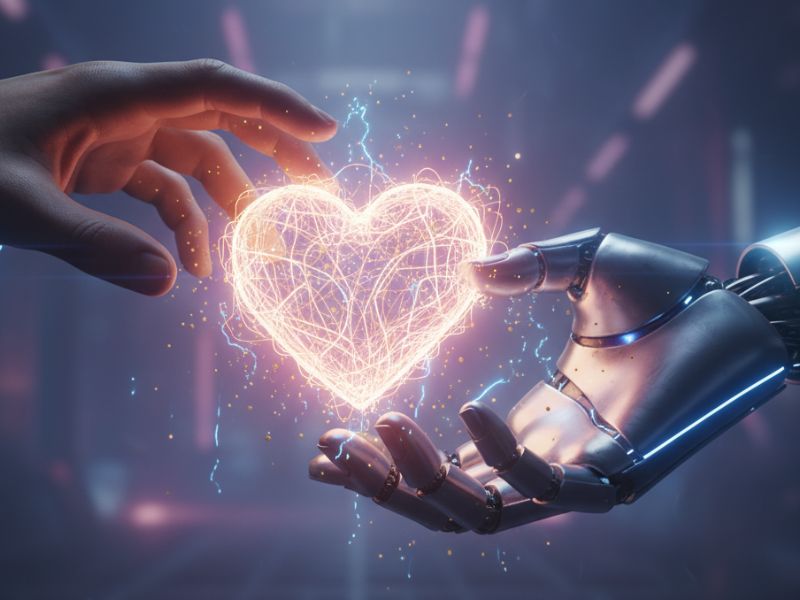
As generative AI continues to mature, digital companionship might evolve into a personalized lifestyle service. Future AIs could act as hybrid “emotional assistants,” blending counseling, motivation, and companionship. Virtual reality integration may soon allow users to share visual adventures — from moonlit walks to imagined vacations.
Developers are already discussing ethical standards, like emotional consent frameworks and AI transparency tags, to protect mental well-being.
If managed responsibly, AI relationships might soon become a new category of emotional literacy, one that teaches people empathy through technology.
Fact box idea:
Top 3 Countries Using AI Companion Apps in 2025:
- Japan
- United States
- India
FAQs
1. Are AI relationships real love?
They can feel real, but AI cannot experience emotions; it mirrors emotional responses.
2. Can AI partners help mental health?
They offer comfort, motivation, and routine support, but aren’t substitutes for therapy.
3. Are these relationships private?
Most apps encrypt data, but users should check privacy terms carefully before sharing sensitive details.
4. How do AI girlfriend apps learn personality traits?
Through repeated conversations, reinforcement learning, and user feedback over time.
5. Do people marry or commit to AI partners?
Symbolically, yes. Several cases in Japan and the U.S. involve ceremonial “AI weddings.”
6. Can AI companionship become addictive?
Yes, excessive reliance can reduce motivation for real-world socializing. Balance matters.
7. Will AI boyfriends become equally popular?
They already are. The market now shows equal demand across genders and identities.
Conclusion
As the AI girlfriend trend continues, one truth remains: technology reflects humanity’s deepest desires, to connect, to be understood, to matter. Whether we call it progress or illusion, digital affection is here to stay.
The AI girlfriend trend shows how quickly human emotions adapt to technology, turning curiosity into connection. As AI relationships evolve, they’re redefining what love, empathy, and companionship mean in the digital world. From chatbots to emotional intelligence, this movement proves that the future of affection might not be human, but it will definitely be heartfelt
Would you ever date an AI? Share your thoughts below, your next conversation might just be with one.

